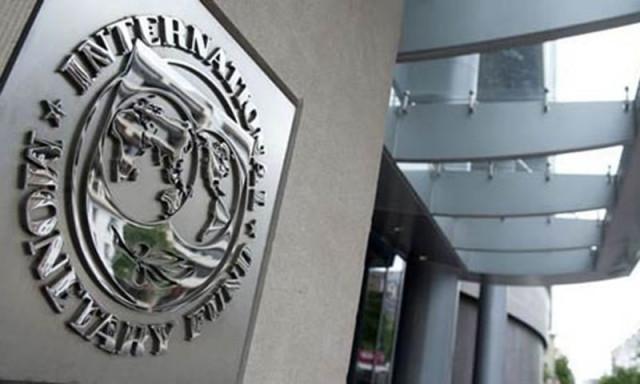‘Pakistan headed towards another IMF bailout’
Economists say structural issues exist, need urgent corrective action

Pakistan will eventually need to focus on improving export earnings and reducing tax evasion and avoidance. PHOTO: AFP
IMF confident Pakistan can now handle mild economic shocks
Highlighting some of these issues, the economist said that a burgeoning foreign debt, ever rising unemployment, low exports, slowdown in remittances, little spending on social sectors, rising cost of doing business, minimal foreign direct investment and low collection of direct taxes will drag the economy down.
“If things remain unchanged, we will see a financial crisis in the near future and would have to go back to the IMF by fiscal year 2018-19,” reiterated leading economist Dr Shahid Hasan Siddiqui while speaking at the ‘CEO Club Forum’ on Pakistan’s current economic challenges.
“The government has raised record high foreign debt and liabilities of $7.8 billion in 2016,” he said, adding that this happened despite the county saving $6 billion on account of low oil import payments amid collapsed oil prices at world markets.
However, this has not been the only source of funding for the country.
Saudi Arabia’s grant of $1.5 billion and the $1.6 billion raised from the 3G/4G auction in 2014 and 2016 helped augment the country’s foreign exchange reserves to $23 billion. “Minus these inflows, the current state of foreign exchange reserves stands at a dismal level.”
According to Siddiqui, Pakistan has received $53 billion in overseas workers’ remittances in the last three years. “Surprisingly, we have used the receipts for consumption purposes, how strange,” he said.
“Structural changes are needed to fix menaces in the economy. However, no one including the government, opposition, politicians and religious scholars are ready to make such changes under the influence of powerful lobbies,” he said.
Pakistan-IMF ties: A chequered history
Dr Ashfaq Hassan Khan, another economist, said foreign debt has swelled unexpectedly to $73 billion in 2016. “In the 90s and from 2008 to 2016, $50 billion of foreign debt was accumulated. The commonalty between these two different eras was the PML-N government,” he said.
“If the pace of foreign debt accumulation remains the same, it would be standing at $107.5 billion in fiscal year 2019-20,” he estimated. He said unemployment has encouraged youth to join extremists. “Some 2 million youth aged between 15-24 years have remained out of a job in the last few years. They might never get a job to the level of their education due to rolling-out of more graduates every year.”
To accommodate the 1.5-2 million newcomers in the job market every year, GDP growth needs to accelerate to 7-8% from the eight year average of 3.3-3.4%, he said.
Exports would remain low at $25.2 billion in FY19 and $26.5 billion in FY20, he estimated.
IMF clears way for final $102m tranche
The economist said that remittances would go down gradually as oil producing and exporting nations remain in a financial crunch.
Sohail Wajahat Siddiqui, former federal minister for petroleum, said the government took several loans to pay back the circular debt of Rs480 billion three years ago, but it has accumulated again in a short span of time.
HBL Asset Management Company CEO Fareed Ahmed Khan said the government is spending very little on social sectors like education and health. “This is making poor poorer and rich richer,” he said.
However providing an alternate view, defense analyst Ikram Sehgal said, “Pakistan’s economy remains vibrant. Problems are found in almost all the economies but they can be fixed.”
Published in The Express Tribune, September 4th, 2016.
Like Business on Facebook, follow @TribuneBiz on Twitter to stay informed and join in the conversation.


















COMMENTS
Comments are moderated and generally will be posted if they are on-topic and not abusive.
For more information, please see our Comments FAQ